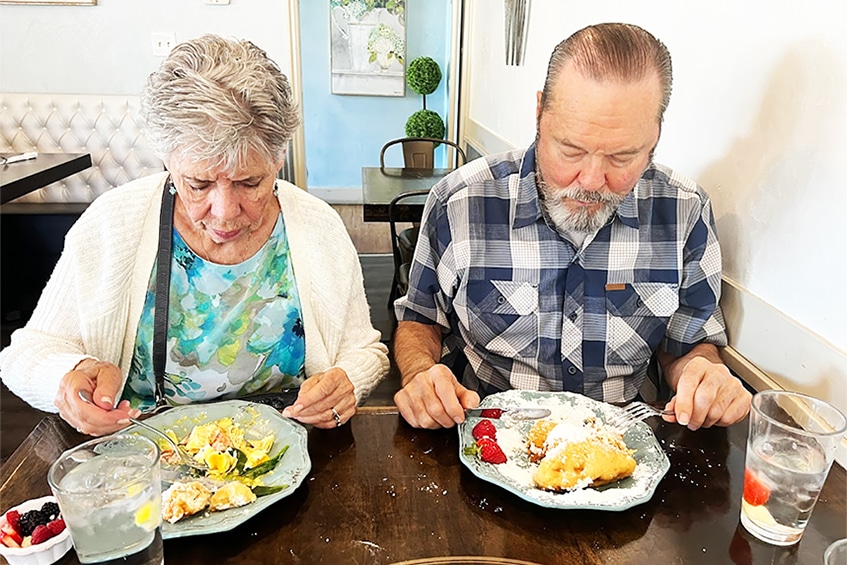Aging creates many changes in the human body, including changes in nutritional needs in older adults. That’s because an elderly person requires fewer calories due to decreased physical activity and a lower metabolic rate.
That also means that the diet should change to accommodate the nutritional needs of the older person. The second helpings or bowls of ice cream that you enjoyed in your 40s are not a good idea once you’re in your 70s or 80s!
The difficulty is that we need to eat less as we age but ensure that we’re eating more nutrient-rich food instead of empty calories or prepackaged foods that are often high in calories and sodium but low in fiber and nutrition.
Recommendations for good nutrition as we age include:
- Ensure you get enough calcium. Bones weaken as we age, so help protect them by drinking calcium-fortified juices or breads or swapping a glass of milk for soda or juice. Our bodies need vitamin D in order to absorb calcium. It’s a good idea to have your vitamin D level checked occasionally when you have blood work done, to be sure the vitamin D level is sufficient.
- Fiber is important in slowing the release of sugar into the bloodstream, for digestion, lowering cholesterol, and for staying at a healthy weight. Plants such as beans, nuts, whole grains, veggies and fruits are naturally high in fiber and most are also packed with nutrients.
- Eat brain food. The fear of Alzheimer’s or dementia is real to many aging adults. Much research is being done about the causes of these diseases and potential treatments but research has shown that fish like salmon, trout, mackerel and herring are beneficial because of their high levels of omega-3 fats.
- The importance of protein. More than 2,000 elderly people’s diets were studied over a three-year period. Those who ate the most protein each day lost 40% less muscle mass during that time than those who ate the least protein. Protein can be found in meat, poultry, seafood, eggs and dairy, but plant-based options such as beans, nuts, seeds, lentils, quinoa and soy are also protein packed (and include more fiber!)
Fluid Recommendations for the Aging:
The aging process weakens the body’s ability to signal the brain that it needs more fluid. His or her sense of thirst changes, even more in those living with dementia, which often means elderly adults do not drink enough water. That in turn can lead to dehydration and urinary tract infections. Signs of dehydration include sunken eyes, dry mouth (a frequent complaint of many elderly); feeling dizzy or fatigued; infrequent urination, low output or dark-colored urine.
Each adult should still be drinking 6 to 8 glasses of water per day. To encourage more intake, keep a reusable water bottle with a straw nearby; many people tend to take more water in by using a straw. Flavor the water with a lemon slice or fresh strawberry. When taking medication, drink the whole glass, not just a sip. Add broth, gelatin or other high water content foods as snacks.
Keeping our residents healthy and hydrated is our daily mission at BeeHive Assisted Living Homes. Our dieticians create homemade meals with seniors’ nutritional needs at the top of the list. And because our staff is so closely attuned to each of the 12 to 15 residents in our small-group residential homes, we are alert to any signs of not eating or of not enough water. We work to make our Abilene, Granbury, Lewisville and Amarillo assisted living homes as well as all of our Texas residential facilities for seniors the best place to live. If we can help provide assisted living care, please give us a call.


1 comment